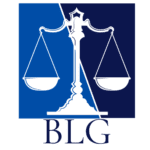Probate is a court-supervised process for identifying and gathering the assets of a deceased person (decedent), paying the decedent’s debts, and distributing the decedent’s assets to his or her beneficiaries.
The Florida Probate Code is found in Chapters 731 through 735 of the Florida Statutes. The rules governing Florida probate proceedings are found in the Florida Probate Rules, Part I and Part II (Rules 5.010-5.530).

There are two types of probate administration under Florida law: formal administration and summary administration. There is also a non-court supervised administration proceeding called “Disposition of Personal Property Without Administration.” This type of administration only applies in limited circumstances.
Probate administration only applies to probate assets. Probate assets are those assets that the decedent owned in his or her sole name at death, or that were owned by the decedent and one or more co-owners and lacked a provision for automatic succession of ownership at death.
If you have questions or concerns regarding probate services, contact the Bostick Law Group to schedule your case review.
Call us at (954) 369-5530 to schedule a probate consultation or complete the quick form below and a member of our team will contact you shortly.
The information contained in this page is intended to be a general review of the topics discussed. Because each case is unique, you should discuss your case with a qualified attorney before relying on the information provided. By providing this information, there is no intent to establish an attorney-client relationship.
McNab Executive Suites
1000 West McNab Road
Pompano Beach, Florida 33069
(877) BLG-1LAW [Toll-free]
(954) 369-5530 [Phone]
(954) 573-6456 [Fax]
[email protected]

McNab Executive Suites
1000 West McNab Road
Pompano Beach, Florida 33069
(877) BLG-1LAW [Toll-free]
(954) 369-5530 [Phone]
(954) 573-6456 [Fax]
[email protected]